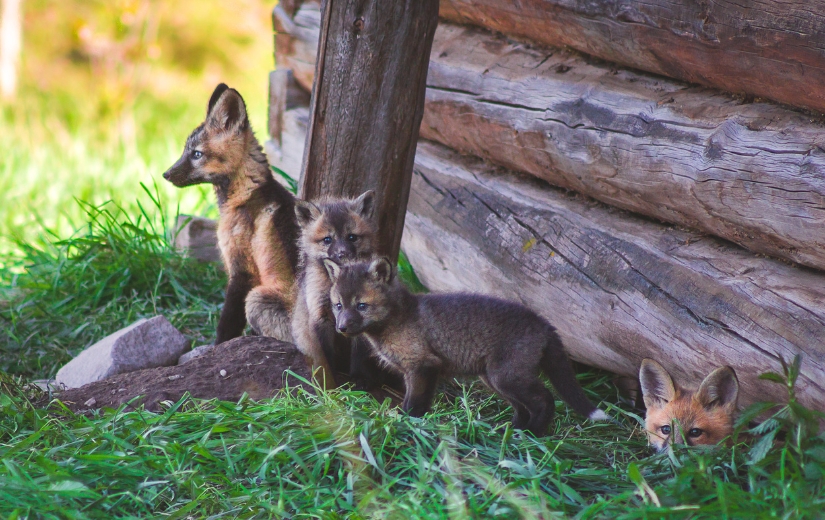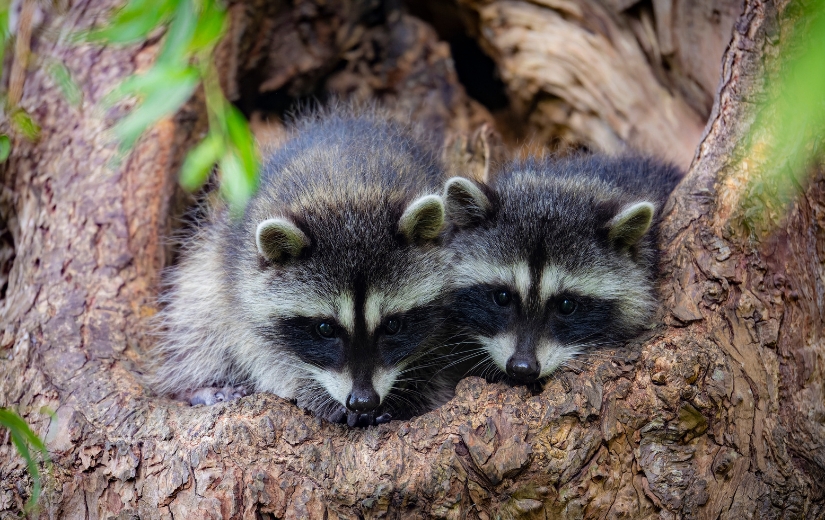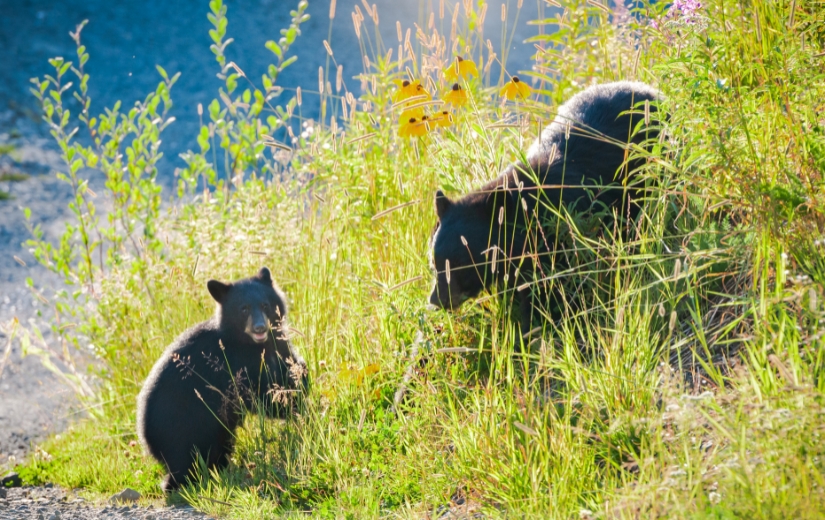Preparing for baby season
February is the month of love, not only for humans, but for wild animals too! Many wild animal species are in the middle of courting and searching for a place to raise their young. That means it’s the perfect time to start preparing for the baby season ahead!
Many of us may enjoy watching birds create nests and raise their young in our backyards but may want to prevent squirrels from raising their offspring in our attics. You can prepare now to prevent unwanted den and nest sites in your home to better coexist with wild animals while also keeping wild babies safe.

In your home
Many wild animals like raccoons, squirrels, skunks, foxes and even coyotes, can seek to raise their young in attics, under decks, or in sheds. All wild animals are looking for three things to raise their young: food, water and shelter. Here are some tips to prepare your home and prevent wild animals from picking yours as their nursery:
- Look for gaps and holes and repair them. This can include closing access to spaces underneath decks and sheds, holes in soffits or gaps in roofs so wild animals cannot get in. Now is the time to exclude animals from these spaces!
- Time for a clean! It’s time to sort through junk piles and put away materials that could be used for nesting or provide places to hide. It’s also a good time to remove attractants like spilled pet food and clean compost, recycling and garbage bins near your home to remove odour and debris. Do a check for any items that could provide shelter, water, or food for wild animals and make sure they are inaccessible.

In outdoor spaces
- Strategically plan garden spaces. Food for us can also be food for wild animals! If you enjoy gardening and harvesting fruit from trees, be strategic in your placement and planning to minimize attracting wild animals to your yard. If you live in an area with regular bear activity, make sure you harvest quickly and regularly to minimize the risk of conflict.
- Check for other outdoor attractants. Bird feeders, feeding companion animals outdoors and barbeques can be attractants for wild animals in outdoor spaces that need our attention. Switch to feeding companion animals indoors and clean barbeques after use to ensure there is no leftover food debris. Consider removing bird feeders and providing natural food sources such as native plants or bushes for birds to minimize the risks associated with bird feeders. If you would like to keep a bird feeder in your backyard, ensure there is no spilled bird seed on the ground and clean your feeder regularly.
- Have a plan to protect wild babies. If you have nesting birds, rabbits or squirrels in your outdoor space that you enjoy, you can take steps to keep them safe through this vulnerable time! Dogs may cause accidental harm to wild babies and you can reduce the risk of this happening by performing a ‘baby check’ before letting dogs in outdoor spaces. Check for shallow rabbit nests on the ground or fallen baby birds or squirrels. If you have an active nest site, keep dogs leashed and away from the area. Similarly, cats can cause significant harm to nesting birds. Keep them indoors, particularly during baby season, to keep wild babies safe.

If you find an injured wild baby, call your local wildlife rehabilitator or the BC SPCA’s Animal Helpline at 1-855-622-7722 for advice.
By using these steps, spreading the word and helping others coexist, you can keep your home baby-free this year while also protecting wild babies outdoors to give them the best chance at survival!